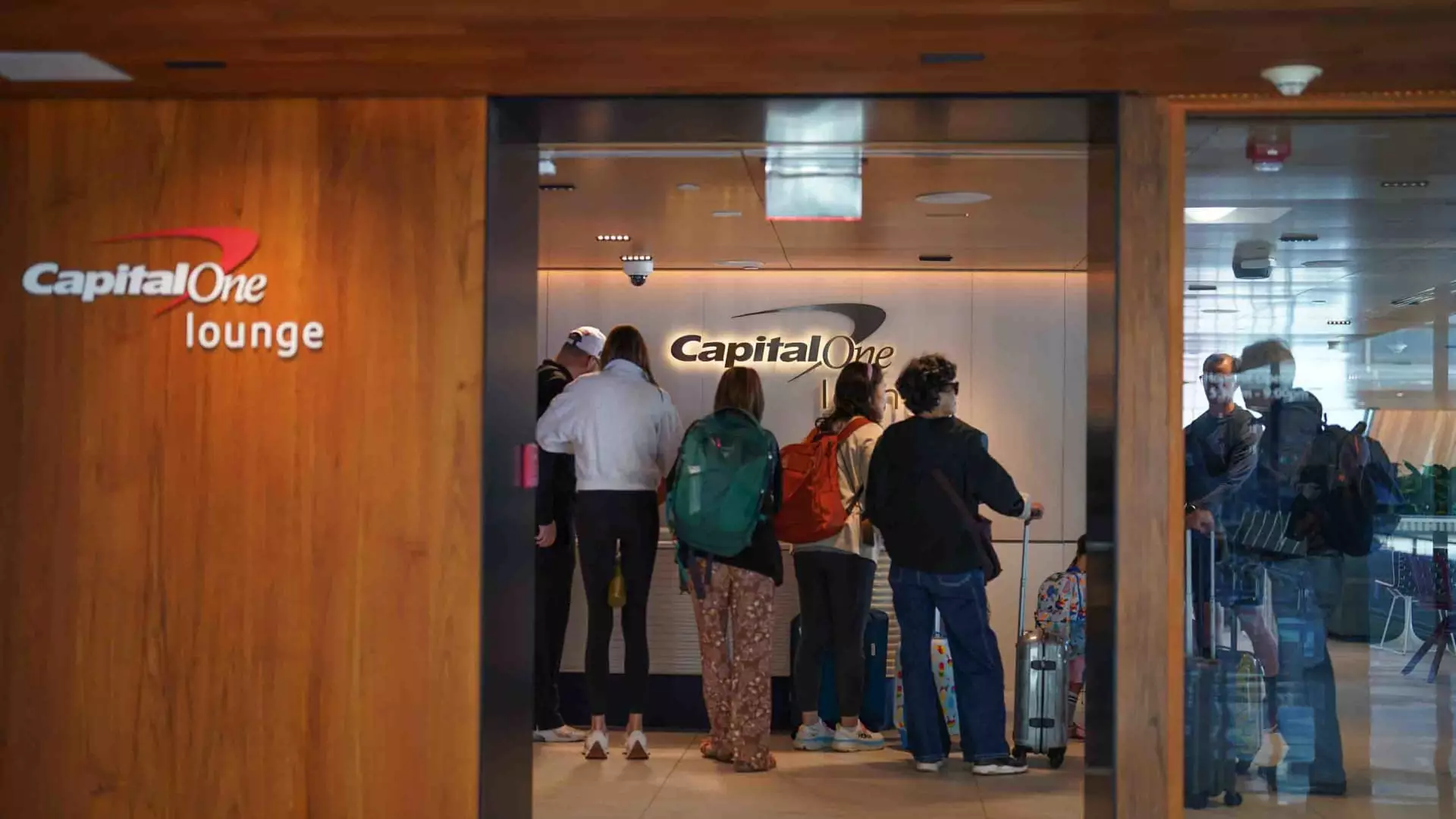In the arena of air travel, one might think that cheaper tickets would result in a more inclusive experience for the average traveler. However, the emergence of stringent access fees for airport lounges paints a different picture. With recent policies from Capital One and others, the privilege of lounging comfortably before a flight is slipping away for families and casual travelers while becoming a costly affair. As someone who appreciates the occasional luxury of an airport lounge, these restrictions are disheartening, showcasing how access to premium amenities is increasingly becoming the domain of the wealthy.
As of February 1st, Capital One will require cardholders of its Venture X and Venture X Business cards to pay exorbitant fees just to bring a guest or authorized cardholder into its lounges. No longer can you simply stroll into these sanctuaries of comfort; instead, you’re confronted with a demand for $125 annually per additional card, alongside fees for guest access ranging from $25 to $45 per visit. Such demands feel less like a reasonable response to overwhelming crowds and more like an exploitation of consumer desire for comfort during harried travel experiences.
The Disruption of Rewarding Exclusivity
Gone are the days when frequent fliers could count on complimentary lounge access as a standard perk of loyalty programs. The requirement for primary cardholders to spend a staggering $75,000 annually to enjoy the privilege of complimentary guest access is a shock. This is especially disconcerting for the casual traveler who simply wants to enjoy a quiet moment before boarding their flight. While I understand the necessity to manage crowding in lounges—an issue that could easily drown the very experience they promise—these measures deny access based on an increasingly exclusive monetary benchmark, alienating most middle-class families.
This trend mirrors practices seen at other credit card companies, reflecting a general shift toward a more elite experience that favors the affluent. It’s hard not to perceive these changes as a blatant attempt to monetize comfort, pushing the narrative that relaxation and exclusivity can only be achieved through significant wealth. The lounge thus transforms from a sought-after amenity to an exclusive club, accessible only to those who are comfortable emptying their wallets for the illusion of luxury.
Chaotic Collision of Airline Policies and Customer Expectations
What we’re witnessing is not an isolated case, either. Airlines, grappling with their charm as travel becomes more chaotic, have also begun to spice things up with revised lounge access policies. Delta Air Lines’ policy changes, including the suspension of unlimited visits, echo the greed-fed theme referenced with Capital One. Here, comfort and convenience are sacrificed on the altar of profitability, creating an ironic situation where one must pay more for the very things that should enhance travel ease.
Moreover, airlines’ expansion of elite lounges designed for premium-class travelers exacerbates this divide. The message is clear: if you’re not spending large sums on tickets, you do not merit the comfort of a lounge. This trend has the potential to alienate the very customer base that fueled the previous growth of these amenities. It becomes a bitter pill for the average traveler to swallow as they are nudged aside for those who flaunt substantial financial resources.
Compromised Core Values in the Travel Industry
In the pursuit of profit, credit card companies and airlines alike seem to have forgotten their original intention: to enhance the travel experience for all. The focus on exclusion rather than inclusivity diminishes the essence of what travel should be about—connection and relaxation. While amenities like lounges should certainly be valued and accessible to those who support them, the current trajectory disrupts the core values of comfort and welcome that should define air travel experiences.
As these policies push travelers away, one has to wonder: Are we sacrificing our collective travel experience for the sake of increasing profit margins? As a center-right liberal, I steadfastly believe in the significance of accessible luxury—not merely for an elite few, but for anyone engaging with the travel community. Now, more than ever, we demand a return to prioritizing the journey over profit, a balance that preserves the communal spirit of travel while still enriching the companies involved.

